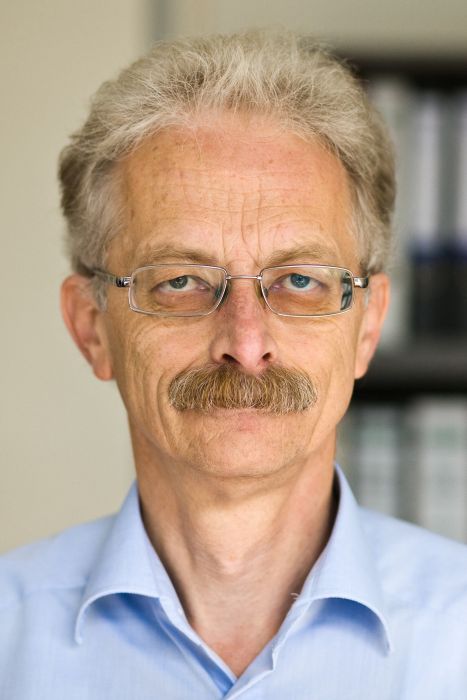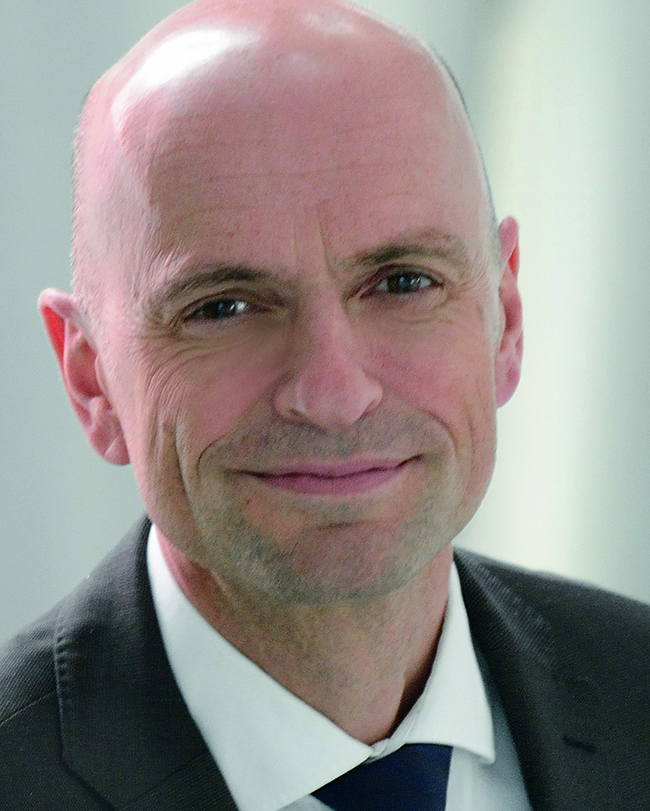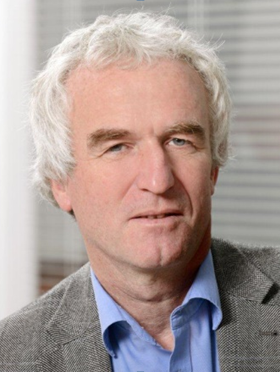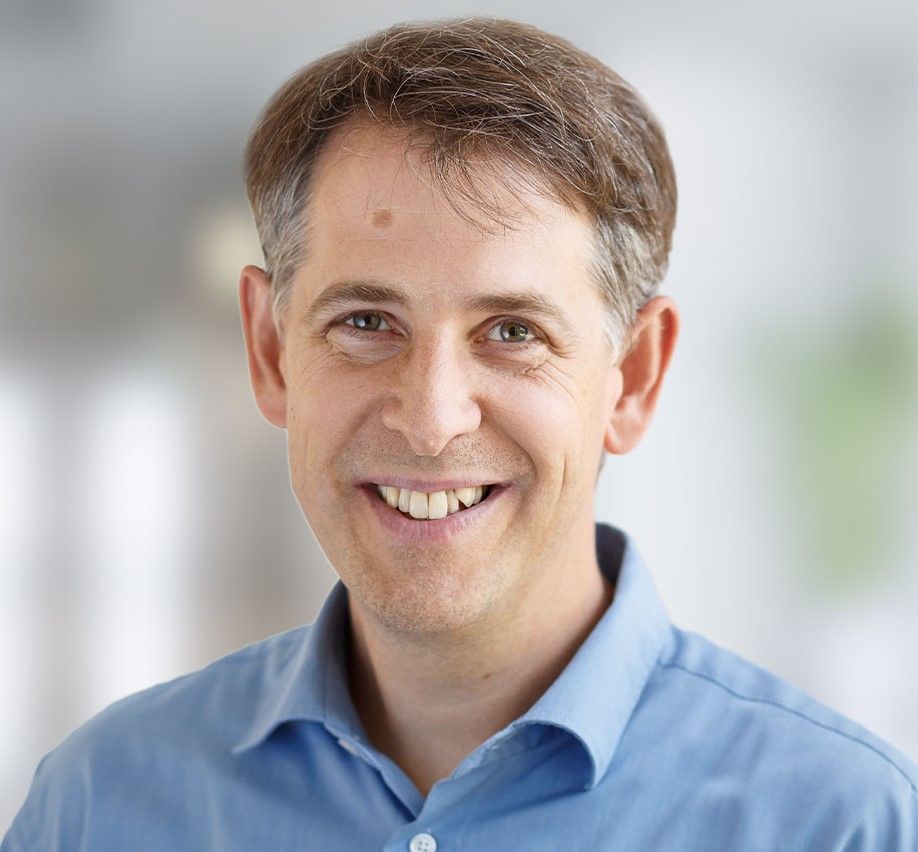Call 2011
Development of therapeutic vaccines. Multipeptide-based phase I/II clinical study for biochemically relapsed prostate carcinoma patients independent of HLA typing (MultiPro) (completed)
Prostate cancer is one of the most common types of cancer in men. By the time it becomes noticeable, it is often so far advanced that a cure is no longer possible. Scientists hope to use a cancer vaccination to activate the patients’ immune system so that it targets and attacks the cancer. They inject the cancer patients with peptides from proteins that occur in particularly high quantities – or exclusively – in cancer cells, together with immunostimulants. Like vaccinations against childhood diseases, where the immune system is stimulated against virus proteins, for example, the idea here is that the immune system will recognize the cancer cells and destroy them. However, if cancer cells are produced that no longer contain the target protein, the tumor may grow again.
The DKTK scientists working on this project are therefore pursuing a strategy of multi-peptide vaccination. The aim is to activate the immune system against a number of different cancer proteins. If this is successful, tumor cells will no longer be able to escape destruction by the immune system so easily. A previous trial produced the desired activation of the immune system and there were indications that it was having an impact on the tumors. However, that trial involved patients with selected immune characteristics. Motivated by the results, the scientists are now looking for a broad spectrum of peptides for a vaccine cocktail with maximum effectiveness that can be used in all prostate cancer patients. In addition, modern infrastructure and processes are being developed to produce the peptides. Because of the legal requirements, the manufacturing process has to meet extremely high purity and quality standards. Between them, the participating centers have the necessary scientific, technical and administrative expertise. The resulting multi-peptide vaccine is to be offered to prostate cancer patients as part of a DKTK trial (MultiPro).
Coordinators

Prof. Dr. Hans-Georg Rammensee
Radiobiological profiling for biochemically stratified radiochemotherapy of HNSCC: A DKTK multicenter retrospective/prospective trial.
Advanced head and neck tumors are usually treated with a combination of surgery, radiotherapy and chemotherapy (radiochemotherapy) or just with radiochemotherapy. However, not all patients respond to this standard treatment. In these cases, the tumor recurs (relapse). In order to personalize treatment and improve the success rate, patients with radiation-resistant tumors are to be identified so that in future they can be offered a more intensive treatment (different radiation dose or more intensive chemotherapy or immunotherapy). Secondly, some patients are currently receiving too much treatment. Identifying this group of patients could lead to treatment-reduction strategies in the future.
In this joint funding project, scientists from all the DKTK sites are working together to make it possible to predict responsiveness in patients with head and neck tumors. To start with, they are retrospectively analyzing tumor samples from patients who have been treated with combined or stand-alone radiochemotherapy. For these patients, the scientists know exactly what treatment they received (e.g. the radiation dose used), and whether they responded to the treatment. The researchers are looking for characteristic biological tumor indicators, or biomarkers, that were particularly resistant or sensitive to radiation. However, before these biomarkers or combinations of biomarkers can be used in routine treatment, the scientists have to confirm their reliability in patients undergoing radiochemotherapy. This DKTK project is therefore currently recruiting patients for a clinical trial of this kind (HNprädBio), which will make use of the DKTK RadPlanBio infrastructure.
Coordinators

Prof. Dr. med. Dr. h. c. Michael Baumann
DKTK Spokesperson
Chairman and Scientific Director of the DKFZ
Identification and molecular characterization of resistance mechanisms to cytotoxic chemotherapies in lung cancer (completed)
Most cancer-related deaths in the western world are linked to lung cancer. A fundamental problem is the resistance of lung cancer to chemotherapy, which continues to be the standard treatment for the vast majority of patients concerned. In this translational project, scientists are researching molecular mechanisms that lead to resistance to chemotherapy. They are analyzing tumor biopsies and blood samples from 130 lung cancer patients participating in a cross-regional clinical trial being run by the working group on internal oncology (AIO), which is testing an improved route of administration for chemotherapy. Tumor and blood samples from the treated patients are prepared centrally for the molecular trials at the DKTK site in Essen and are then analyzed by experts from several DKTK sites. In Essen, for instance, scientists are investigating whether signal molecules that are produced or modified in greater numbers in the tumors correlate with resistance or with a positive treatment outcome. They are analyzing tissue samples from the tumor and tumor cells detected in the blood. In Tübingen, scientists are checking whether characteristics of liquid blood components can be used to predict a patient’s response to chemotherapy. In Heidelberg, scientists are researching to what extent tumor cells in the blood contribute to tumor resistance and the development of metastases. In cooperation with the University of Cologne, complete cancer genomes are being analyzed for some patients using modern sequencing methods to detect previously unknown genome modifications that might influence a patient’s response to treatment.
This project will identify tumor characteristics at molecular and cellular level. In future, these findings can be used to help identify lung cancer patients who will respond particularly well to chemotherapy. The physicians are also hoping to develop improved treatment strategies for other tumors, including colon, stomach, breast and ovarian cancer, which are treated with the same or similar chemotherapies as lung cancer. Ultimately, this trial will also be able to identify individual lung cancer patients who could benefit from new targeted therapies because of specific molecular changes.
Involved Partnersites
Essen/Düsseldorf, Frankfurt/Mainz, Freiburg, Heidelberg, Tübingen
Coordinators

Prof. Dr. Martin Schuler
Externer Partner
Molecular Diagnostics for Pediatric Cancers (completed, see also INFORM)
Cancer is the second most common cause of death in children in Germany, after road accidents. In many cases, young cancer patients cannot be cured or suffer from complications as a result of the intensive treatment they receive. There is therefore a need for new cancer therapies to be developed. One problem is that children suffer from a wide range of different types of cancer, but each type occurs only rarely. Until now, this has made it difficult to develop new treatments. Thanks to cutting-edge technology, including next-generation sequencing, physicians and researchers can now sequence the genetic makeup of a patient’s cancer cells (cancer genome sequencing). This paves the way for targeted cancer treatment. The first step is molecular diagnostics – identifying the characteristic individual changes (mutations) in the cancer genome for each young patient. The idea is that in future, physicians will be able to use the mutations in the cancer genome to draw up a specific treatment plan for each child. The advantage of this precision oncology in children, is that their cancer cells often present fewer mutations than those found in adults. This makes it easier to identify the mutations that drive the cancer’s growth and which present suitable targets for cancer treatment.
The seven DKTK sites involved in this collaborative project are setting up a network of children’s cancer centers that will offer their patients cancer genome sequencing. The participating researchers will start by looking for characteristic genome mutations in different types of childhood cancer. This requires collaboration between the university hospitals within the DKTK – in order to obtain enough cases of rare cancers to enable them to draw meaningful conclusions. The cancer genomes of patients at all the participating centers will be sequenced using DKTK-wide standardized processes. Specialists at the various sites will then evaluate the results. For instance, samples of childhood liver tumors will be evaluated in Munich, while retinal tumors will be evaluated in Essen. The researchers and pediatric oncologists are particularly interested in the possibility this will open up for a joint analysis of all the different types of childhood cancer. They want to identify mutations that may occur infrequently in individual types of cancer but which play a role in a number of different cancers. The researchers are hopeful that they will then be able to offer young patients new therapies, or that they will be able to predict which established treatment is most likely to be successful.
An additional knowledge gain from this project is that the researchers can identify hereditary gene defects that trigger the onset of cancer in children. In future, physicians will use evidence of such hereditary genome mutations to improve preventive strategies and start treatment earlier, thereby increasing the likelihood of success.
Involved Partnersites
Berlin, Essen/Düsseldorf, Frankfurt/Mainz, Freiburg, Heidelberg, München, Tübingen
Coordinators

Prof. Dr. Peter Lichter

